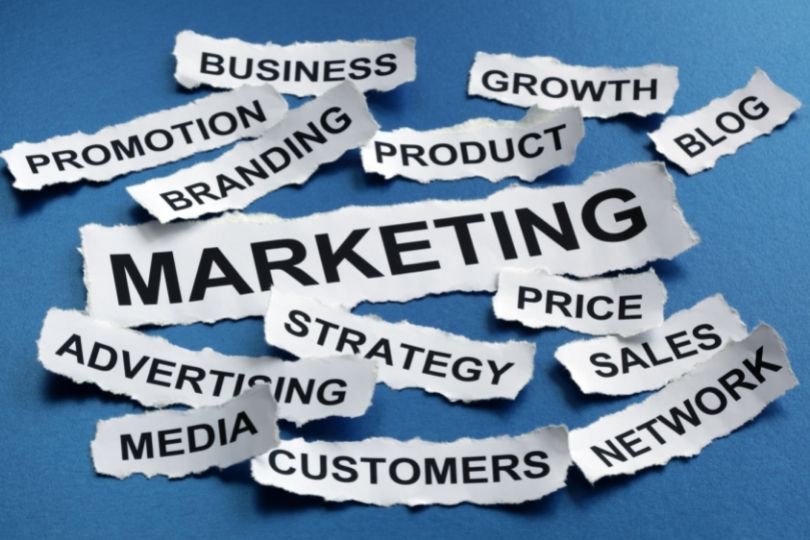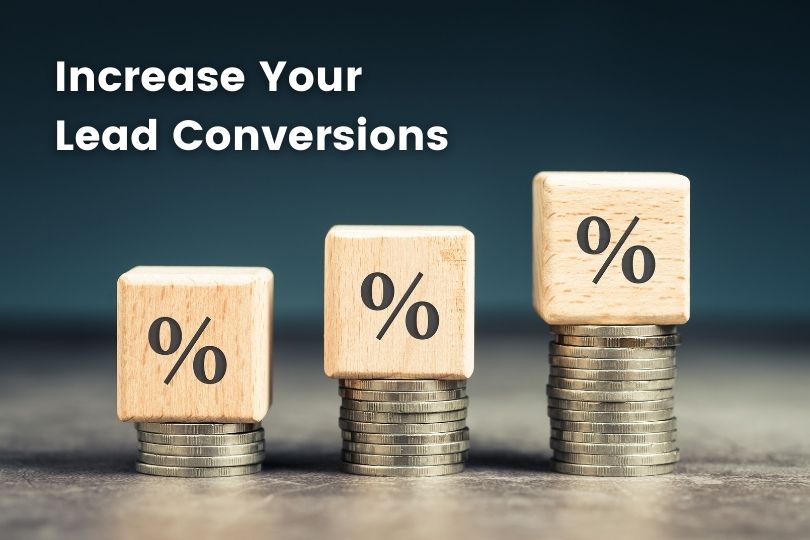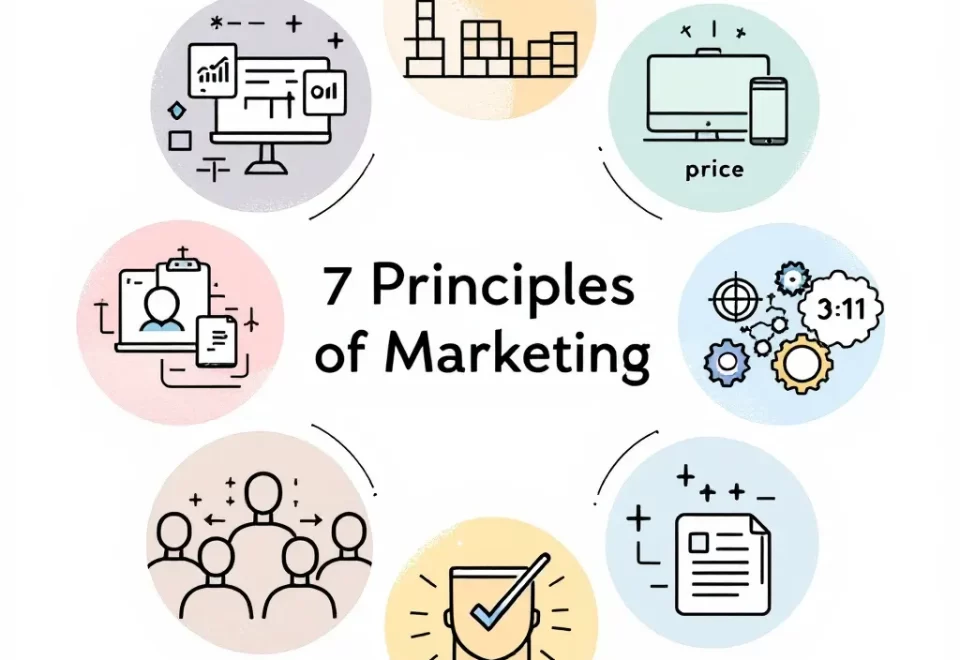Market competition is fierce. Today advertising and marketing specialists do their best to cope up with the innovative strategies and stay ahead of competition. These brand-new strategies are all about nudging leads to make a final step - improve conversions. One of these strategies is conversational marketing. The conversational marketing methodology is an innovative way to promote and sell products. This style of inbound advertising puts the focus on engaging with website visitors and will help you automate customer interactions. Conversational marketing is one of the best practices to increase your lead conversions exponentially. In this guide, you will get familiar with conversational marketing and how to use it to increase lead conversions (Without forgetting that you will need sales reps to convert those leads into actual clients). Let's start!
The Basics of Conversational Marketing
The definition of conversational marketing is self-explanatory. This marketing strategy implies building one-on-one dialogue with potential customers to promote a product. Conversational Marketing is the latest trend in digital marketing. It's a method of engaging with web visitors and converting leads via dialogue-driven activities, which are achieved by using tools that understand your needs or communicate them back to you in an efficient way according to what they want through messaging apps such as WhatsApp, Facebook Messenger, SMS text messages, etc., all seamlessly integrated onto one platform so when it comes time for conversion; sales team members can simply follow steps laid out beforehand based on who will most likely buy from him at any point during conversation. The conversational marketing strategy is not different from inbound marketing, it is part of it.
The main goal of conversational marketing is letting leads know how the product can help solve the issues they have. It leads to building warm relationships between the brand and the customers. You might wonder - what is the difference between advertisement and conversational marketing? Sure, the ads can cover up the issues your target audience might have. However, any ad lacks the element of communication with the audience. That's why people ignore the ads most of the time. Instead of burning your PPC budget draw attention to conversational marketing. Conversational marketing can be a powerful tool for companies of all sizes. This innovative approach engages customers in chats (Such as messaging apps like Facebook Messenger or WhatsApp) or call center style conversations where they get information about your product and what it will do before deciding whether to buy! Conversational marketing creates an environment where you talk to the audience and improve customer experience. You are ready to answer whatever questions people want to ask. How does it work? Obviously, it is unreal to communicate with every potential customer using human resources. That's why this process takes an automated approach with the help of chatbots. Even if chatbots are great to automate your lead generation and improve your sales process, you will still need a sales team to move your MQL (Marketing Qualified Leads) to SQL (Sales Qualified Leads).
The main goal of conversational marketing is letting leads know how the product can help solve the issues they have. It leads to building warm relationships between the brand and the customers. You might wonder - what is the difference between advertisement and conversational marketing? Sure, the ads can cover up the issues your target audience might have. However, any ad lacks the element of communication with the audience. That's why people ignore the ads most of the time. Instead of burning your PPC budget draw attention to conversational marketing. Conversational marketing can be a powerful tool for companies of all sizes. This innovative approach engages customers in chats (Such as messaging apps like Facebook Messenger or WhatsApp) or call center style conversations where they get information about your product and what it will do before deciding whether to buy! Conversational marketing creates an environment where you talk to the audience and improve customer experience. You are ready to answer whatever questions people want to ask. How does it work? Obviously, it is unreal to communicate with every potential customer using human resources. That's why this process takes an automated approach with the help of chatbots. Even if chatbots are great to automate your lead generation and improve your sales process, you will still need a sales team to move your MQL (Marketing Qualified Leads) to SQL (Sales Qualified Leads).
How to Run Conversational Marketing Strategy
Conversational marketing strategies can vary in terms of niche specifications. To put it simply, you can't use the same conversational marketing strategy for the fashion and medical industries. However, there are a few general rules that each conversational marketing strategy abides by. Let's review them.
1. Q&A concept
With a focus on enabling customers to ask questions, brands that invest in this approach can expect increased loyalty and reduced churn.First and foremost, you need to know what questions your audience is going to ask. To explore these questions your task is to find out what search queries your audience correlates with your product. You can use keyword research data for this purpose. How? Take search queries and analyze them with the "Questions" report from Ahrefs' Keywords Explorer tool. For example, you suggest email signature software. One of the search queries is "email signature": As you can see, there are 14K+ question-based search queries that you can use for your conversational marketing strategy. Keep in mind that various channels - live chat, bot-based chat, & live-streaming - have their own specification. Thus, you will have to identify the right call to action for each channel specifically. It will help you guide users to the right place on your website - deliver relevant content, drive traffic to the pricing page, the page where they can make a purchase, the FAQs page, etc.

2. Personalization
What's the point of having conversations with your customers if they can't be personalized? One-on-one marketing has been proven time and again as a way to build stronger customer relationships, increase trust and loyalty.In today's digital age, many customers are turning to bots for assistance with their shopping experience. What makes a bot so useful and how do they differ from human customer service representatives?
A company may choose to use an automated response when providing information about its products or services on social media platforms like Facebook or Live Chat features because this type of interaction does not require as much time commitment by staff members who might already be busy doing other things during work hours; however, even if bots provide excellent lead generation opportunities since all interaction occurs through pre determined routes which helps manage expectations while simultaneously qualifying prospects, you will often need a sales team to convert those leads into customers.
The key to conversational marketing is the way you can personalize your communication with the audience. The process of personalization using chatbots begins with the following nuances: • The type of the user (existing customer, random user, potential customer who wants to buy) • The page the customer is on (if the customer is on your blog page, your chatbot can suggest some topic-related content) • Type of activity on the site (if the user visits some specific landing page, the chatbot can suggest more detailed information regarding this tool or service)
3. Feedback
Don't hesitate to ask users to share their feedback regarding your chat system. Chatbots are a great way for your sales team to connect with leads on the spot, ask for feedback so they can personalize their response. It will help you optimize the system per users' suggestions. Plus, you will let the audience know that you care about the opinion of the users. Focusing on developing a customer-centric, conversational strategy is important in order to maintain an engaging experience for your customers. Feedback from these discussions can reveal where improvement needs or areas of weakness are and help you create more meaningful interactions that will lead them along their journey with the company.What Are the Benefits of Conversational Marketing
The best way to have an engaging conversation with a customer is by using live chat, messaging channels, bots or messaging apps (Such as Facebook Messenger, WhatsApp...). These tools will enable you establish that personal connection, improve your customer experience, increase sales opportunities, speed up your sales cycle and keep your leads interested in what you are saying!
Conversational marketing is a powerful tool for businesses looking to move buyers through your marketing and sales funnels. Through real-time conversations, you build relationships with customers and create authentic experiences with customers, which are key in building trust among prospects who may have been previously skeptical of your brand or services offered on site.
Conversational marketing has many benefits that can help you increase lead conversions. Let's review the most prominent ones: • It saves time Conversational marketing aims to speed up communication with your customers and engage your website visitors. It handles customer requests round the clock providing people with the required information. For example, by using Live Chat, Telegram or WhatsApp for customer support, you can ensure that customers have a familiar and convenient platform to communicate their needs, enhancing their overall experience. Eventually, it saves time for both sides - customers and brand. For instance, you want to get a more detailed answer to the question of how to create an infographic. If the chatbot can suggest the right link to the source, it will save your time exploring this information. Practice shows that a chatbot suggests the information taken from the Help Center. It is not exactly what you might need. Therefore, it is far better to send your request to a live customer success specialist. • It creates a better user experience User experience plays a crucial role in the overall success of the website. Conversational marketing can help you with this. Depending on what stage of the marketing funnel each user is at, a customer gets instant answers to the questions with the help of a chatbot. • It helps get to know customers better The most basic way to collect information about the customers is using analytics and various surveys. This type of data suggests the information based on objective findings. Conversational marketing takes a personal approach towards each customer having a chat. A one-on-one conversation allows users to explain what they are looking for and what they need exactly. Every conversation brings new findings of your customers. They share likes and dislikes regarding your product or service. Thanks to conversational marketing you will be able to discover more about the product and update it accordingly. • It creates a human-like experience Human connection in customer support is essential. Customers don't like when they get answers to the questions without any soul touch in it. That's why it is quite important to use conversational marketing that provides users with a human-like experience. Now, let's see how to use conversational marketing to increase lead conversions throughout the marketing funnel.
Conversational marketing is a powerful tool for businesses looking to move buyers through your marketing and sales funnels. Through real-time conversations, you build relationships with customers and create authentic experiences with customers, which are key in building trust among prospects who may have been previously skeptical of your brand or services offered on site.
Conversational marketing has many benefits that can help you increase lead conversions. Let's review the most prominent ones: • It saves time Conversational marketing aims to speed up communication with your customers and engage your website visitors. It handles customer requests round the clock providing people with the required information. For example, by using Live Chat, Telegram or WhatsApp for customer support, you can ensure that customers have a familiar and convenient platform to communicate their needs, enhancing their overall experience. Eventually, it saves time for both sides - customers and brand. For instance, you want to get a more detailed answer to the question of how to create an infographic. If the chatbot can suggest the right link to the source, it will save your time exploring this information. Practice shows that a chatbot suggests the information taken from the Help Center. It is not exactly what you might need. Therefore, it is far better to send your request to a live customer success specialist. • It creates a better user experience User experience plays a crucial role in the overall success of the website. Conversational marketing can help you with this. Depending on what stage of the marketing funnel each user is at, a customer gets instant answers to the questions with the help of a chatbot. • It helps get to know customers better The most basic way to collect information about the customers is using analytics and various surveys. This type of data suggests the information based on objective findings. Conversational marketing takes a personal approach towards each customer having a chat. A one-on-one conversation allows users to explain what they are looking for and what they need exactly. Every conversation brings new findings of your customers. They share likes and dislikes regarding your product or service. Thanks to conversational marketing you will be able to discover more about the product and update it accordingly. • It creates a human-like experience Human connection in customer support is essential. Customers don't like when they get answers to the questions without any soul touch in it. That's why it is quite important to use conversational marketing that provides users with a human-like experience. Now, let's see how to use conversational marketing to increase lead conversions throughout the marketing funnel.
Tips on Using Conversational Marketing Throughout the Funnel
The idea behind conversational marketing is to push potential leads down the funnel to the final stage - conversion. Therefore, conversation marketing should apply different tactics for every stage specifically. The marketing funnel consists of four main stages - awareness, interest, consideration, and conversion. So, what are the conversational marketing tactics you can use throughout the funnel?
1. Awareness stage
The first stage of the marketing funnel is called awareness. At this stage, you spread awareness around your brand using ads on social channels. It helps you drive more traffic to your site and let people know your product better. Unfortunately, there is one problem that appears at this stage. When potential leads click the ads, they redirect to one of your landing pages. They see your product and don't know what's next. If they don't find any solution, they bounce your site. Consequently, they never reach the conversion stage of the funnel. How to catch the audience's attention at the awareness stage? Add conversational bots to your interactive ads. It will help you apply a conversational marketing approach outside your website. These conversational bots can give some automated answers to the questions from the audience. But it won't be enough to give them a clear understanding of your product. Eventually, conversational bots nudge users to visit your website. That's when your chat system needs to engage with the audience further providing users with the information based on what landing page of your site they are. For example, when you visit a landing page of the Content Explorer tool from Ahrefs, you can see that the chat system suggests the post on the updated version of the tool. This way of using conversational marketing at the stage of awareness helps catch people's attention and move them to the next stage - interest.




